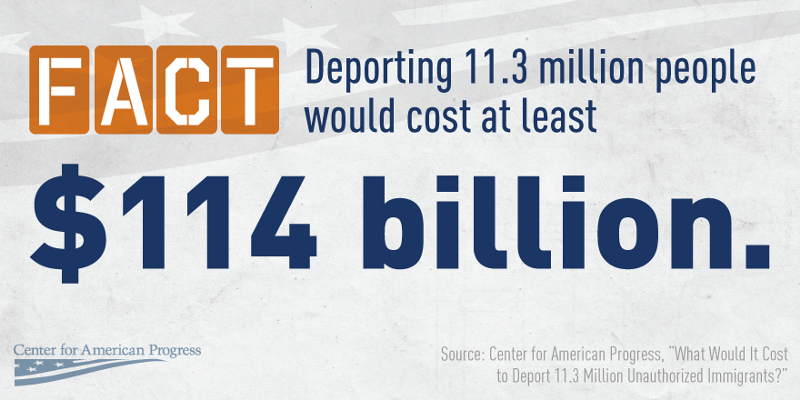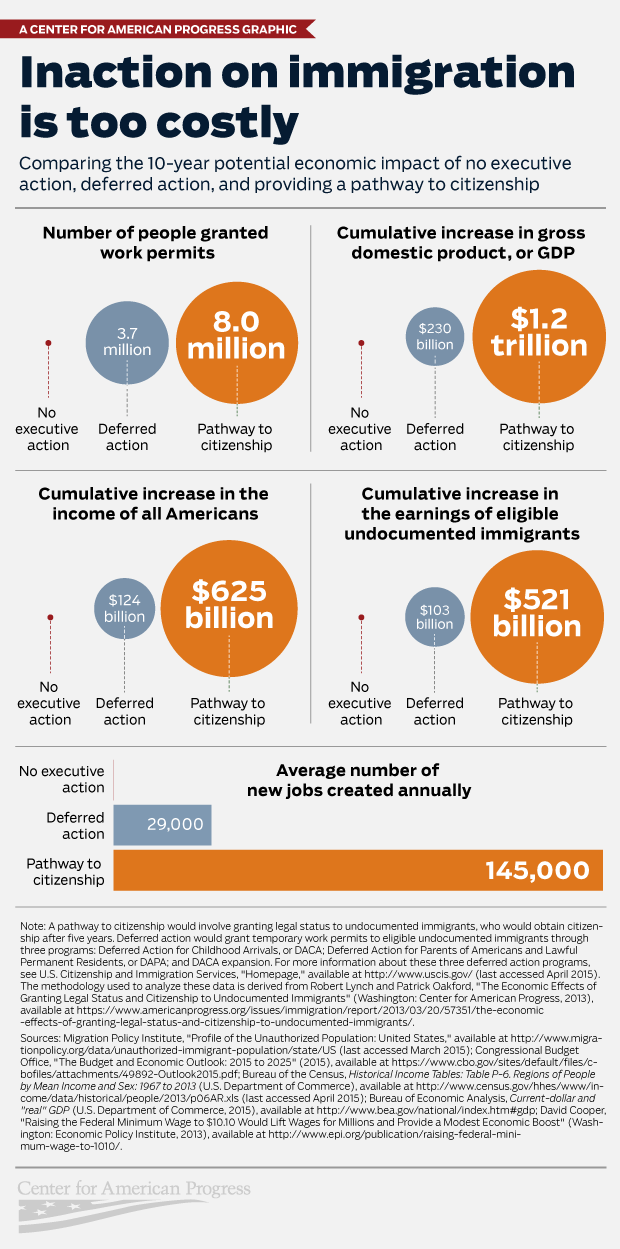By Angela Maria Kelley
More than two years ago, when the Republican Party was coming off another presidential election loss and had undergone a full-scale review of its messages, positions and tactics, there was a glimmer of hope that we might address one of the most pressing issues facing our country: immigration reform. That June, of 2013, after the GOP determined its standing with the Latino community was in shambles, fourteen of them, including current presidential candidates Sen. Lindsey Graham and Sen. Marco Rubio, voted for a landmark comprehensive immigration reform bill that passed the Senate.
The Republican-led House of Representatives refused to consider the Senate bill, leaving it to die at the conclusion of the Congressional session last December. Today, nearly a year after the House Republicans turned their back on immigration reform, the vitriolic tone that is permeating the language of the GOP presidential hopefuls, shows just how far this party has fallen on policies supporting immigration reform and embracing the immigrant community
There is no question that the GOP frontrunner, who entered the race calling Mexicans “rapists” who are bringing drugs and crime to the U.S., has increased the level of anti-immigrant rhetoric. Trump has been so inflammatory toward immigrants that the immigrant rights group America’s Voice created a “Trump Hate Map,” showing places where Trump, his staff, or his supporters, have harassed or attacked immigrants — in one particular incident, a Trump bodyguard punched a Latino man who was protesting the candidate’s hateful positions.
Still, Trump is only the most visible symptom of a larger problem: the GOP has taken a sharp right-turn on immigration, one that began not long after immigration reform passed the Senate.
Starting as early as October of 2013, Sen. Marco Rubio (R-FL), one of the “Gang of 8” that co-sponsored the Senate immigration reform legislation, was backing away from his own bill; more recently he has gone as far to say that we cannot have a comprehensive fix to our immigration system, only piecemeal tinkering around the edges, and said this week that he wouldn’t support a pathway to citizenship during his potential presidency.
As we have gotten deeper into the GOP primary, many of the candidates have fought to be the most conservative on policies related to immigration. A look at the GOP primary by the Center for American Progress Action Fund details these issues, including mass deportation and an end to birthright citizenship — issues considered only by the most anti-immigrant fringe of the party until recently — as well as opposition to a pathway to citizenship for those already here, and blocking Obama administration executive action.
Taken together, this slate of anti-immigrant policies largely makes up today’s ultra-conservative GOP position on immigration.

· The mass deportation of unauthorized immigrants: Trump sparked significant controversy when he called for the removal of the 11.3 million unauthorized immigrants living in the U.S., a proposal estimated to cost $114 billion. Forcing unauthorized immigrants to leave the country, sometimes referred to as “attrition through enforcement” or “self deportation,” was the default GOP immigration policy championed by former Massachusetts Gov. Mitt Romney (R) during his 2012 presidential run — a policy that helped him lose the Latino vote by near-historic lows.
· An end to birthright citizenship: The 14th amendment to our constitutions enshrines the principle that if you are born here, you are a citizen. Ending birthright citizenship means requiring every single parent in the U.S. to undertake the lengthy and complicated processes of proving their children’s citizenship, which could amount to an effective birth tax of $600 per child. It also means condemning children to a permanent underclass simply by virtue of who their parents are. So far, Senators Rand Paul, Ted Cruz, and Lindsey Graham have called for ending this right.
· Opposition to a pathway to citizenship: Senators Cruz, Carson, and business leader Carly Fiorina –among others — have consistently opposed a pathway to citizenship for undocumented immigrants. Fiorina has stated that she does not believe unauthorized immigrants “should have a right to earn the privilege of citizenship,” while Cruz has called a pathway to citizenship “profoundly unfair.”
 Creating a pathway to citizenship for unauthorized immigrants brings a host of economic benefits
Creating a pathway to citizenship for unauthorized immigrants brings a host of economic benefits
· Block and repeal executive actions on immigration: “In November 2014 President Obama announced a series of administrative actions on immigration that would allow up to 5 million parents and DREAMers — people who came to this country at a young age — to get a temporary reprieve from deportation and a work permit. Doing so would add a cumulative $230 billion to the U.S. GDP over a decade, and create on average 29,000 jobs each year.
Republicans weren’t always this anti-immigration, and certainly not as inflammatory. President Ronald Reagan once spoke of his shining city on a hill, and a city whose walls had doors for those with the will to get there. As president, he signed the Immigration Reform and Control Act of 1986, which provided a pathway to citizenship for 3 million unauthorized immigrants. And he stated his support for amnesty in a 194 debate. President George H.W. Bush took similar action in 1990. And Reagan wasn’t alone: Every president since Dwight D. Eisenhower has taken executive action on immigration.
Yet today comprehensive immigration reform stands alongside action on climate change as issues Republicans once felt we should act on that are now litmus tests for the GOP nomination. And this is despite what would be a major benefit to our economy. Allowing unauthorized immigrants to come forward, register with the government, pass background checks, and work legally would add a cumulative $1.2 trillion to the U.S. GDP over a decade, and create on average 145,000 jobs each year. It would also add $625 billion to the income of all Americans. Simply put, taking action that gives people the opportunity to work instead of ripping their family apart helps grown the U.S. economy and put more money in the pockets of working people.
Close to half a million immigrants and more than one million Latinos live in Colorado, where the next GOP debate will be, meaning the candidates will be talking directly to many people they have spent months disparaging. It’s time for an end to the inflammatory and divisive rhetoric, and instead for a real debate on how to create an immigration system that works for all.